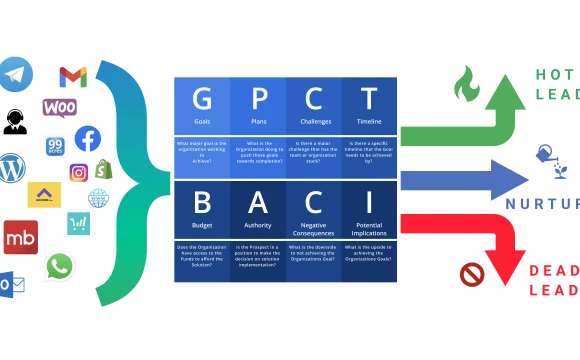Let’s be honest. For years, the “ideal” salesperson was painted with a very specific brush: loud, charismatic, a relentless networker. But what if that model is, well, incomplete? What if we’re missing out on some of the most brilliant, detail-oriented, and loyal talent because our playbook is too narrow?
That’s where neurodiversity comes in. Neurodiversity is the idea that neurological differences—like Autism, ADHD, Dyslexia, and others—are simply natural variations in the human brain, not deficits. It’s a competitive advantage waiting to be tapped. Building a neurodiversity-inclusive sales team isn’t just about checking a box for corporate social responsibility. It’s a strategic move to drive innovation, reduce turnover, and connect with a wider customer base.
Rethinking the “Rockstar” Salesperson
The classic sales archetype thrives on spontaneity and rapid-fire conversation. But a neurodiverse team brings a symphony of different strengths to the table. An autistic sales development rep might have an incredible ability to hyper-focus, mastering product details that others gloss over. A colleague with ADHD could be a powerhouse of creative problem-solving when a deal seems stuck. Someone with Dyslexia might possess outstanding verbal storytelling skills and big-picture thinking.
The goal isn’t to find a new single “type.” It’s to create an ecosystem where different cognitive styles can thrive and complement each other. Think of it like building a sports team—you need different positions with different skills to win.
Practical Strategies for an Inclusive Hiring Process
Okay, so how do we actually do this? It starts by dismantling the traditional, often biased, hiring funnel.
Revamp Your Job Descriptions
Scrutinize your postings. Do you really need “outstanding social skills” or are you looking for “the ability to build genuine customer trust”? Swap out vague, personality-centric requirements for clear, skill-based competencies. Focus on the outcome, not the style.
Ditch the High-Pressure Interviews
The classic panel interview in a sterile room is an anxiety nightmare for many, especially neurodivergent individuals. It often assesses the ability to interview well, not to do the job well.
Instead, consider a work sample or a paid trial project. Give a candidate a sample customer problem and see how they’d research and prepare a solution. Provide interview questions in advance. This levels the playing field and lets you assess actual job-related skills.
Building a Supportive and Effective Environment
Hiring is just the first step. Retention is where the real work—and payoff—happens. Inclusion is a daily practice.
Communication is Everything
Neurodivergent people often process information differently. What seems like a simple, casual instruction to one person might be confusingly vague to another.
Get specific. Be clear and direct in your feedback and expectations. “I need you to improve your follow-up” is unhelpful. “Let’s aim for a 24-hour response time on all new leads, and use this specific email template for the first touch” is actionable. And for goodness sake, embrace written communication. Detailed emails or project briefs can be far more effective than a rambling verbal meeting.
Flexibility as a Default, Not an Exception
A one-size-fits-all approach to work styles is a recipe for burnout. Offer flexibility in:
- Workspace: Noise-canceling headphones, quiet zones, or the option to work remotely.
- Tools: Allow people to use the software and apps that work for their brain (e.g., different CRM interfaces, note-taking apps).
- Process: One rep might excel at scripting, another at freestyle. Focus on the conversion rate, not the method.
Structured, Not Rigid, Processes
Many neurodivergent individuals excel with clear structure. Create detailed playbooks for different scenarios—handling objections, onboarding a new client, escalating a support ticket. This isn’t about removing creativity; it’s about providing a reliable framework that frees up mental energy for the complex, human parts of the sale.
Here’s a quick look at how strengths can be harnessed:
| Cognitive Style | Potential Sales Strengths | Supportive Strategy |
| Autism | Deep focus, pattern recognition, honesty & reliability, mastery of complex details. | Clear, written instructions; minimal context-switching; focus on technical or high-detail product lines. |
| ADHD | Hyperfocus (on interesting tasks), creativity, high energy, resilience, big-picture thinking. | Flexible deadlines; variety in tasks; use of gamification; clear, short-term goals. |
| Dyslexia | Strong narrative reasoning, problem-solving, visual thinking, empathy. | Speech-to-text software; verbal briefings; focus on verbal presentation skills over written reports. |
Leveraging Neurodiversity for Customer Connection
This isn’t just an internal win. A neurodiverse sales force naturally reflects your diverse customer base. You know that incredibly technical buyer who asks the tough questions? An autistic rep with deep product knowledge is your secret weapon. The creative agency owner who thinks in concepts, not spreadsheets? Your dyslexic rep with a gift for storytelling can build that bridge.
By having a team that thinks in different ways, you inherently expand your capacity to understand and empathize with a wider array of client needs and communication styles. It makes your entire sales engine more robust and resilient.
The Bottom Line is Bigger Than You Think
Building a neurodiversity-inclusive sales team requires a shift in mindset. It asks us to move from managing for uniformity to leading for individuality. It demands that we provide the right environment, not just the right pitch.
The result? You don’t just get a team that feels valued and stays longer. You get a team that sees problems from angles you never considered, that builds trust in ways you hadn’t imagined, and that, quite frankly, can outthink and out-innovate the competition still stuck in the old “rockstar” model. The future of sales isn’t about being the loudest in the room. It’s about being the most thoughtful.






